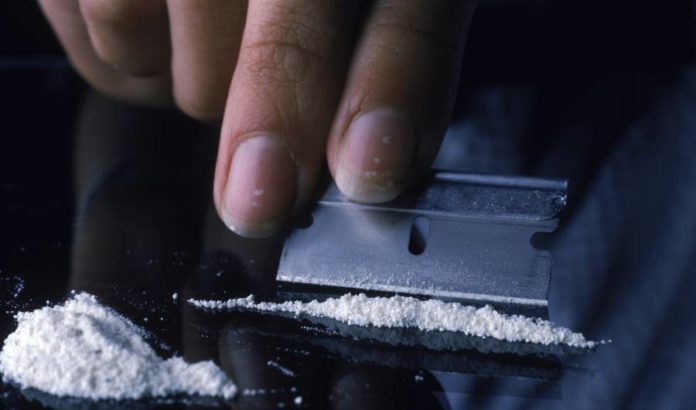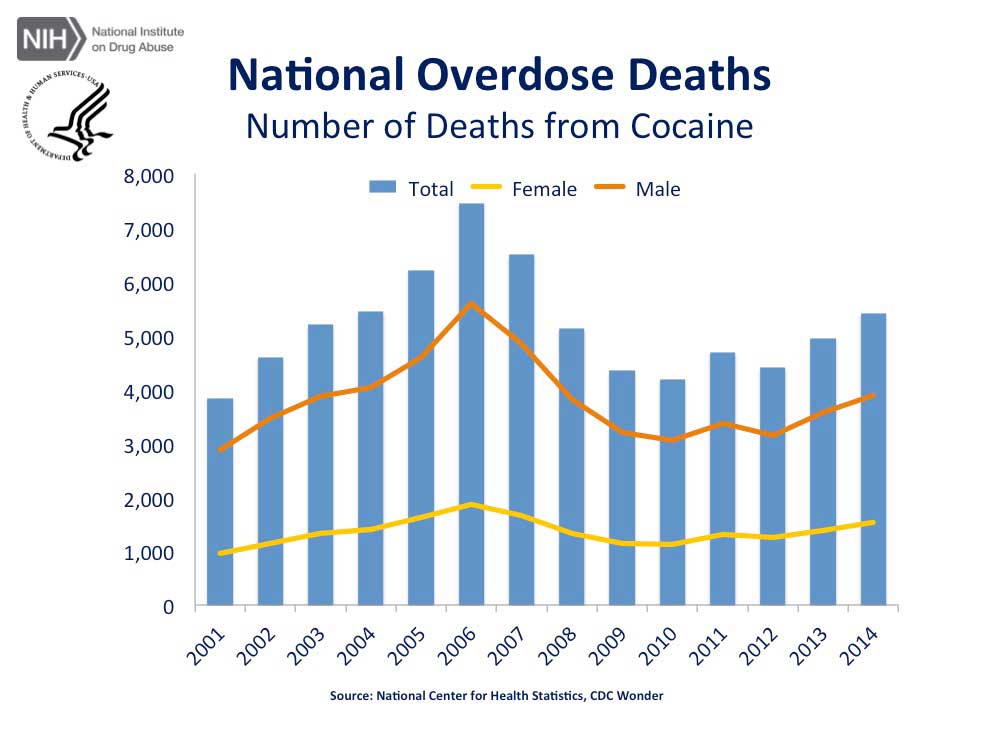
Researchers at the Johns Hopkins University School of Medicine have discovered the first direct evidence that high doses of cocaine kill brain cells by triggering overactive autophagy, the process by which cells digest their own insides. In other words, the highly addictive drug makes your brain eat itself.
Autophagy is a normal “clean-up” process by which the cells rid themselves of debris stored inside bag-like structures called vacuoles – Autophagy normally doesn’t cause cell death. These bags fuse with other bags that are filled with acid, which destroy the contents of the bags. When the mouse brains were exposed to cocaine, this process accelerated and spiraled out of control, turning the cells into cannibals.
“A cell is like a household that is constantly generating trash. Autophagy is the housekeeper that takes out the trash — it’s usually a good thing. But cocaine makes the housekeeper throw away really important things, like mitochondria, which produce energy for the cell,” Guha explained.
“When we talk about cocaine, we mostly discuss its addiction. But it’s been shown that long-term cocaine exposure causes memory problems and brain function abnormalities. That tells you that eventually, when you’re an addict, you’re killing some of your neurons. We wanted to see the basic mechanism of this neurotoxicity,” Guha told IFLScience.

For the study, lead researcher Prasun Guha, a postdoctoral fellow at Johns Hopkins, and his team first added cocaine molecules to cultures of nerve cells from mice and “unbiasedly screened all different pathways that lead to death” to determine which one was at work. Next, the team tried the experiment on live animals. They gave pregnant mice cocaine and found autophagy in the brains of offspring of the mothers. The researchers found higher than normal levels of LC3-II antibodies and lower levels of p62 protein, which are both markers of autophagy.
In 2013, Dr. Solomon Snyder, professor of neuroscience at Johns Hopkins University and coauthor on the study, found that nitric oxide, which the brain cells use to communicate, is involved in cocaine-induced cell death through its interactions with GAPDH, an enzyme. To find out how precisely the cells were dying, his research team in the current study examined nerve cells from mouse brains for clues. By measuring changes in the levels of proteins that control each cell death program and by observing the cells’ physical changes, this time the team saw clearly that cocaine causes neuronal cell death through out-of-control autophagy.
“We performed ‘autopsies’ to find out how cells die from high doses of cocaine. That information gave us immediate insight into how we might use a known compound to interfere with that process and prevent the damage,” said Snyder.
We all know cocaine isn’t the healthiest thing in the world, but did you know it causes the brain to ‘eat itself’? https://t.co/TJ1c7T8GtO
— NowThis (@nowthisnews) January 20, 2016
The team then tested several chemicals known to prevent cellular suicide, and found that a drug molecule dubbed CGP3466B, known to disrupt nitric oxide/GAPDH interactions, could prevent cocaine-induced out-of-control autophagy. The researchers found that CGP3466B protected mouse nerve cells in the brain from death by cocaine through nitrosylation (a process by which nitric oxide abolishes GAPDH’s enzymatic activity).
CGP3466B has been tested in Phase II clinical trials to treat Parkinson’s and Amyotrophic Lateral Sclerosis (ALS). Although those trials were unsuccessful, they nonetheless proved that CGP3466B is safe for human consumption. But the researchers say it will take subsequent studies on mice, as well as human trials, to determine if it’s actually the right antidote.
Though Guha and his team still need to conduct further research, the findings involving CGP3466B are “promising” and “can rescue cell death”.
“It’s important to know the exact mode of cell death. We now know that autophagic cell death is exclusive for cocaine’s neuronal toxicity, so developing drugs against autophagy could be beneficial.”
Cocaine destroys brain cells by making them eat themselves – exactly the same thing corruption does to brain cells.
— Dr. Njakiri Damages (@DrDamages) January 20, 2016
“Since cocaine works exclusively to modulate autophagy versus other cell death programs, there’s a better chance that we can develop new targeted therapeutics to suppress its toxicity,” added Dr. Maged M. Harraz, a research associate at Johns Hopkins and lead co-author of the study.
This Article (Cocaine Turns Brain Cells Into Cannibals, Johns Hopkins Study Finds) is free and open source. You have permission to republish this article under a Creative Commons license with attribution to the author and AnonHQ.com.





What about methamphetamines like ritalin? I’m worried bc my ex is prescribed these and it messed her up mentally worse than she already was. I heard her say before about talking to the doctor about our oldest daughter getting this prescribed to her. Which I’m already aware of the side effects of this drug and am extremely against my daughter being put on this. I just wondered if maybe ritalin does the same thing, bc I read an article about how there have been tests done that show that ritalin affects your brain the same way as cocaine.
My motivational and energy levels dropped taking Ritalin do not take them!
Ritalin has weird effects in a lot of people. If you are diagnosed with ADHD and the Ritalin is doing that then discuss amphetamine instead, if the doc refuses get a different doc. Too many quacks will try to push Ritalin on people who should be on amphetamine.
Chris, Ritalin is methylphenidate not methamphetamine and work in very different ways. The other common adhd med is amphetamine without the n-methyl group making it also very different from methamphetamine.
There is a loose similarity between the action of Ritalin and cocaine. Ritalin is primarily a dopamine and norepinephrine reuptake inhibitor, cocaine also inhibits serotonin reuptake (yes the fabled triple reuptake inhibitors proposed as the next gen of antidepressants will never see the light of day since they would by definition mimic cocaine…. but I digress)
The small similarities don’t translate to this study. Both Ritalin and amphetamine when used correctly and prescribed correctly (often not) to people who legitimately have ADHD are safe and exceedingly effective.
Of cause like all drugs and all chemicals, natural or otherwise, if they are misused/overused they can cause serious problems but that’s in doses far exceeding therapeutic doses.
Don’t fall into the trap of forming an opinion of a drug without seeking professional advice. I don’t know your situation but ill give a hypothetical example: If she legitimately has a disfunction in the dopamine system of her pre frontal cortex, especially while the brain is growing, and that singnaling pathway is not stimulated (Ritalin or amphetamine) then she could suffer from lasting problems with decision making, mood regulation etc. Alternatly which is far too common then it should be, if she does not legitimately have ADHD (they realy need to change the name) then the meds will not be necessary or beneficial. Also Ritalin is just prescribed since it has less abuse potential then amphetamine but the latter is far more effective.